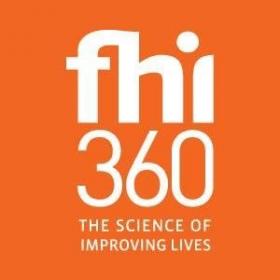The Associate Director for Crisis Response is a senior member of the Crisis Response Team (CRT) and is one of the first staff members on the ground in humanitarian emergencies. They supervise all technical leads and operational staff to ensure programs are being implemented effectively and efficiently in accordance with donor guidelines, and they serve as the principal point of contact with host government stakeholders as to ensure proper coordination and communication. They lead the first phase of operations in highly insecure environments and will be responsible for assessing humanitarian needs and risks, designing interventions and overall response strategy that leads to proposal development. They lead all programmatic/operational and startup/ project launch activities. While based in Washington DC, the incumbent will be expected to deploy to the field for 60-70% of work time, often to austere and/or insecure locations with minimal infrastructure or amenities.
- Lead FHI 360 humanitarian responses, from the assessment of emergency needs through the design and implementation of projects.
- Supervise all humanitarian personnel in country.
- Develop and resource response strategies, including identification of potential donors, concept note and proposal drafting, and cultivating collaborative partnerships among peer agencies.
- Responsible for ensuring high quality of programming that is aligned with global humanitarian cluster technical standards and best practices.
- Ensures security requirements for the team are met to provide for duty of care.
- Oversees project financial management during initial phases of business development and project launch.
- Lead rapid, effective start up for new projects; address delays and obstacles with appropriate parties, and ensure corrective actions are taken.
- Provide and facilitate technical support for FHI 360 projects by advising on and coordinating technical deliverables, undertaking technical assignments, reviewing scopes of work, and helping staff apply sound technical practices.
- Lead in development of an FHI 360 set of standardized field tools for: rapid assessments in key sectors, concept design and presentation, and other documents to facilitate a standardized approach to humanitarian response.
- Represent the CRT on behalf of the director in his/her absence, briefing FHI 360 leadership on response operations, and working with key institutional stakeholders to ensure active deployments are adequately supported.
Problem Solving & Impact:
- Works on problems of complex scope that require analysis of situations and data of various factors.
- Exercises judgment within broadly defined practices and policies in selecting methods and techniques for obtaining solutions.
- Decisions made generally have major implications on the management and operations of an area within a department.
- Significant leadership experience in first-phase humanitarian response operations.
- Typically requires 8+ years of experience in project management with a minimum 6 years of field-based experience managing emergency responses in multiple countries.
- Experience establishing new country programs and/or project startups.
- Demonstrated ability to professionally represent FHI 360’s interests for a diverse range of stakeholders, including humanitarian & UN agencies, local government and community leaders.
- Operational knowledge of international humanitarian architecture and core coordination processes for large-scale emergencies.
- Knowledge of best practices and key theoretical frameworks for priority technical specialties, such as Water & Sanitation, Health, nutrition, protection, livelihoods and food security.
- Proven track record of developing, resourcing, and managing responsive, evidence-based emergency projects. Expertise in USAID/OFDA funding mechanisms and regulations essentials.
- Working knowledge in State Department and UN humanitarian programs and funding mechanisms.
- Experience with operational security protocols and procedures in humanitarian settings.
- Excellent verbal and written English skills required. French or Arabic language skills advantageous.
Typical Physical Demands:
- Typical office environment.
- Ability to sit and stand for extended periods of time.
- Ability to lift 5-50 lbs.
Technology to be Used:
- Personal Computer, Microsoft Office (i.e. Word, Excel, PowerPoint, etc.), e-mail, telephone, printer, calculator, copier, cell phones, PDAs and other handheld devices.
FHI 360 fosters the strength and health of its workforce through a competitive benefits package, professional development and policies and programs that support healthy work/life balance. Join our global workforce to make a positive difference for others — and yourself.
